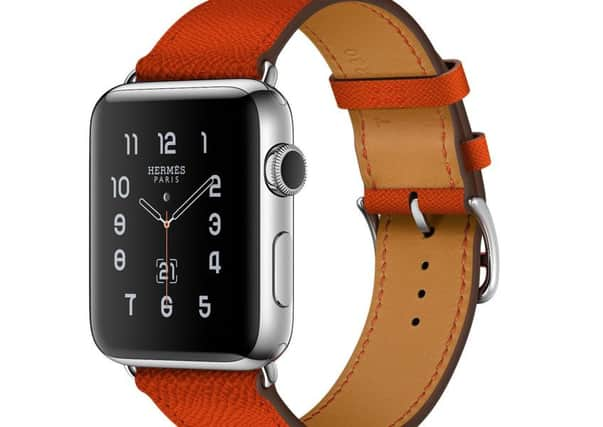Should there be a smartwatch on your wrist this summer?


The Apple Watch changed that. There were few takers when the device was launched two years ago and despite an upgrade last autumn, it remains very much a niche product.
Watches traditionally fall into three categories: exotic, luxury and utility, with Rolex and Tag Heuer at one end of the scale and your local garage forecourt at the other. Apple has targeted the middle ground with its new generation of timepieces, which start at £270 but look, to me at least, much less expensive. A more fashionable model designed by Hermes of Paris costs well over £1,000.
Advertisement
Hide AdAdvertisement
Hide AdSmartwatches do much more than tell you the time, but how much more you need a watch to do is open to question. They can track your fitness regime, receive messages and remind you of appointments, and you can use them at the tills in some shops without reaching for your wallet.
Crucially, they are also accurate to the second, because they receive time signals online, just as your phone does. But my old Casio Wave Ceptor watch, which cost just £50 and does not qualify as smart, is equally accurate because it communicates with a radio transmitter. And its battery needs replacing only once every two or three years, at around £4 a time. A smartwatch, on the other hand, will need charging every other day at the very least, otherwise it won’t tell you the time or anything else.
What my Casio won’t do it change its face at the touch of a button. But with most smartwatches, you can switch between a library of analogue and digital designs to suit your preference, with weather, calendar and other widgets available on tap. Irrespective of what else they do, this is the best reason to buy one of these devices, if you can justify moving into the luxury bracket.
You don’t have to pay Apple prices to do so. As with phones, Google’s Android system offers an alternative and there is a bigger range of brands and styles available.
Advertisement
Hide AdAdvertisement
Hide AdAndroid watches were originally little more than wrist-worn remote controls for the phone in your pocket, but they, too, have benefited from a software upgrade this year - the biggest advantage of which is that you can install apps without having to use a compatible phone. However, a feature that lets them share a SIM card with the same number as your mobile, allowing you to leave the phone behind and take calls on your watch, is not going to be implemented in the UK. Our mobile networks insist on you having a separate number for the watch - a system far more trouble than it’s worth.
There are several reasons so few of us have started wearing smartwatches: many people rely on their phones now for telling the time and have got out of the habit of wearing anything on their wrist; besides, the watches do not add functionality to that of your phone - they merely duplicate it. So, it comes down to a lifestyle choice... in much the same way as buying a Rolex instead of a Timex or a Ferrari instead of a Ford.